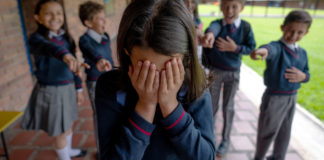Everything about the person who can hold you back: A short essay about you
Albert Einstein didn't speak until he was 4 years old, and didn't read until he was 7. His parents thought he was mentally disabled, and one of the teachers described him as "mentally slow, unsociable, and adrift forever in his foolish dreams." He was expelled from school and denied admission to the Zurich Polytechnic.
Sports betting: from entertainment to addiction
Sports betting may seem to be a harmless way to unwind, but the relationship between winning and losing is, mostly, not in the player’s favour. Moreover, the road from entertainment to addiction can prove to be a short one, while the recovery process is arduous and long.
Happiness is always available
How do you respond when someone asks: "How are you"? With a slight shrug and an unconvincing "Fine"? What else could you say, when you are not convinced that your daily life adds up to anything more than that?
Good or bad: How we come to love negative characters
It is as surprising as it is real: negative characters like Dexter Morgan, from the eponymous Dexter, and Walter White, from Breaking Bad, have been cropping up in popular culture more and more often lately. Since when, how, and why have anti-heroes gained so much popularity?
The end of a matter is better than its beginning
Most of us have been urged since we were little to not give up, to carry on, and to “go our own way”. The idea that giving up is a negative choice, a synonym for failure, or a sign of cowardice or inability, is deeply embedded in our minds.
Looking back on small acts of great kindness
This article contains stories of kindness, courage and generosity. By their simplicity they prove that all it takes to do good is a heart that is open to the needs of others.
Overcoming boundaries without crossing the line
I was a young student looking for a good paying job to support my family and my studies. On that day, I found myself in the head nurse’s office at the nearby nursing home for the elderly.
Divorced from reality: Why the need to know often does more harm than good
After 27 years of marriage, billionaire couple Bill and Melinda Gates publicly announced their divorce in May, sending shockwaves across the globe.
The self-esteem movement and the unhappiness of a generation
They say self-esteem is a vital ingredient for success in life. But what if everything we were taught about self-esteem is wrong?
My mechanism of resilience
When I was four years old, my younger brother was born. My parents focused on my brother and spent less time with me. It was only 40 years later that I discovered how this had affected me.
“Courting controversy”: When taking a stand can risk it all
Naomi Osaka has forever tarnished the sanctity of the great game of tennis... at least, according to the media.
Bullying: Effective strategies to put an end to it
Children who fall prey to bullying cannot save themselves, just as the children who have become accustomed to bullying others will not give up this behaviour without outside intervention. As the phenomenon of bullying spreads, with harmful consequences on children's development, the need to know and apply strategies to combat it is becoming more pressing.
Positive thinking overdose: Why too much optimism is harmful
If optimism helps us get rid of problems more easily, too much optimism does the exact opposite: it amplifies them. Pushed to the extreme, positive thinking prescribed as an antidote to suffering prevents us from accepting reality as it is and starting to look for solutions that can make our lives easier.
Two steps back, but three steps forward
On the morning of the 15 November 2016, I awoke in a hospital bed, with no memory of how I got there. My favourite pyjamas had been torn from my body, and I lay in a hospital gown, a piercing pain in my head, impaling my brain. I was barely able to think and incapable of speech. I was scared, though this was...
The power of grief: How to survive the death of a loved one
There has been an increase in the number of so-called "experts" in an increasing number of so-called "fields". It seems that all of life has been divided into neatly-marketable industries. No wonder then that the arrival of a new expert in something familiar to mankind for ages, is met with caution. In the case of Julia Samuel's expertise in the field of grief...


























